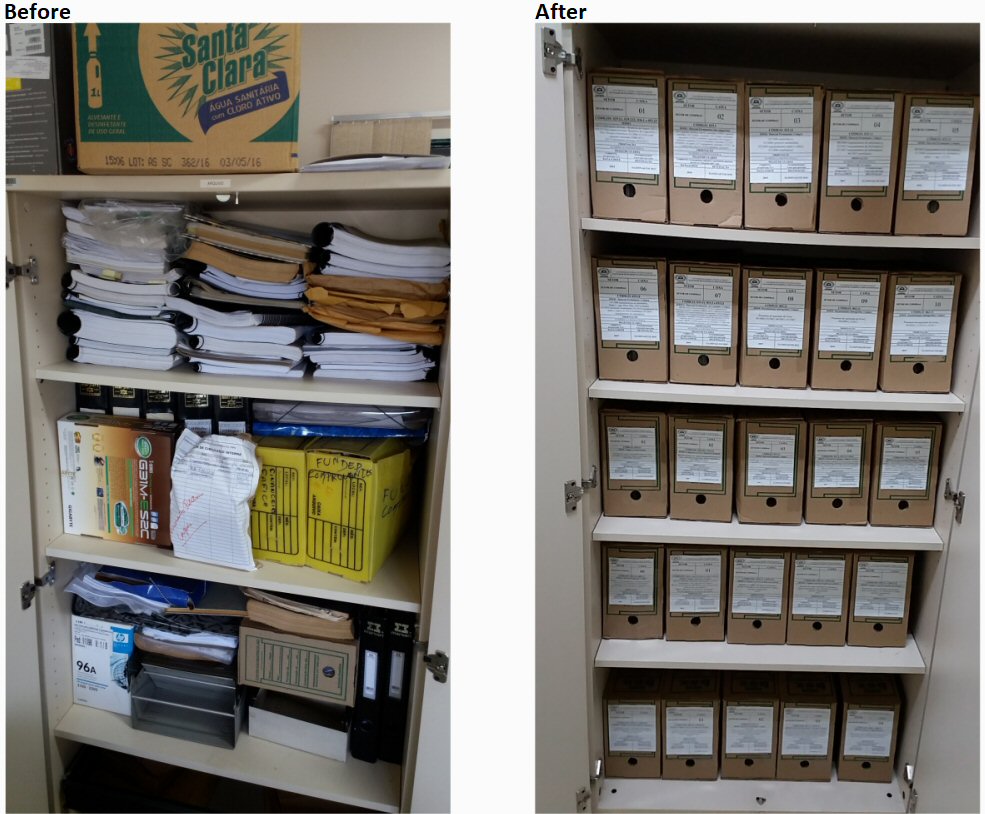Documentary collection
DOCUMENTAL AND ARCHIVE COLLECTION - PPGCP-UFMG
In 2020 the PPGCP-UFMG completed 55 years, having been the first Graduate Program in Brazil. In May 2019, the Program coordinator hired a historian specialized in organizing archives to take care of the accumulated document collection and current files of the Program's secretariat.
At that time, the work began to organize the Secretariat's archive. Since then, documents produced by the sector have been collected and stored in different rooms, with the purpose of identifying, classifying, evaluating, and directing them for permanent custody or disposal, according to the legal deadlines for the custody of each document.
More than 60 boxes of Master's (1967-2019) and PhD (2006-2019) students' documents and 40 other boxes containing administrative and academic documents related to the courses were organized. Around 30 boxes of documents were prepared for disposal, the authorization of which depends on the Board of Directors of the Institutional Archives (DIARQ) of UFMG. We also counted a volume equivalent to 30 boxes of copies for disposal.
The legal norms used for this work followed the recommendations of 1) the Manual for Management of Archival Documents of UFMG; 2) a document called Classification, temporality, and destination of archival documents - related to the secondary activities of the public administration of the National Council of Archives (CONARQ); and 3) the Code of Classification and the Table of Temporality and Destination of Archival Documents related to the core activities of Federal Higher Education Institutes (IFES), the latter published in the National Archives. The organization of the archives was monitored by the Fafich Sectorial Archive and by the Permanent Sectoral Commission for the Evaluation of Fafich Documents, and it was supervised by the Board of Directors of the Institutional Archives (DIARQ).
This work enabled the implementation of document management in the Secretariat, with the main objective of enabling historical-institutional research as well as avoiding the accumulation of documents, preserving those which have historical value and eliminating those which are no longer needed, while observing the legal term of custody. The documents were packed in boxes, duly coded, and stored in accordance with the aforementioned legal norms, facilitating access and providing greater transparency and security in the daily tasks of the Secretariat.
Leandro Araújo Nunes has a degree in History from UFMG, a specialization in Archive Organization and a Master's in Social History from USP.




